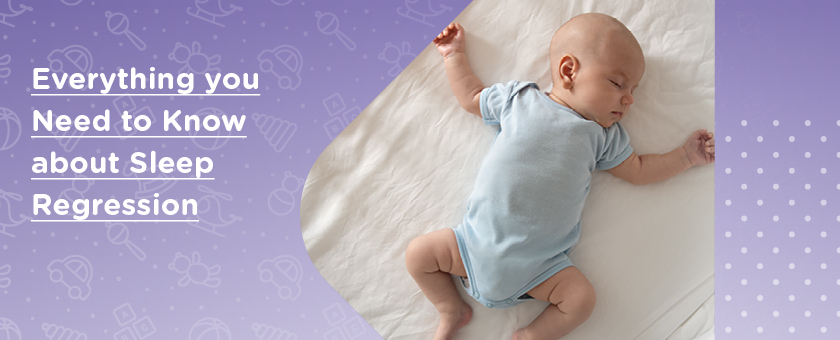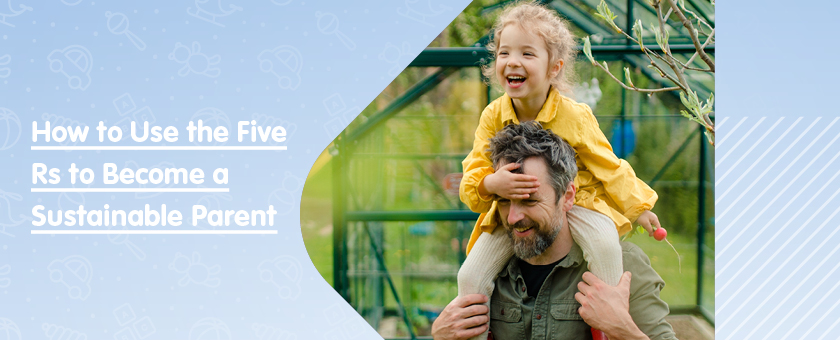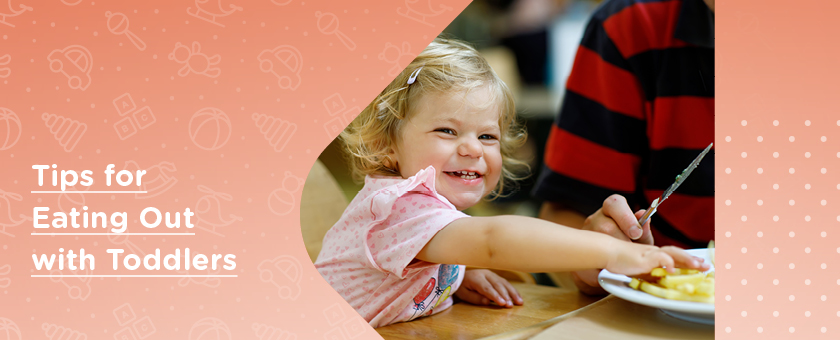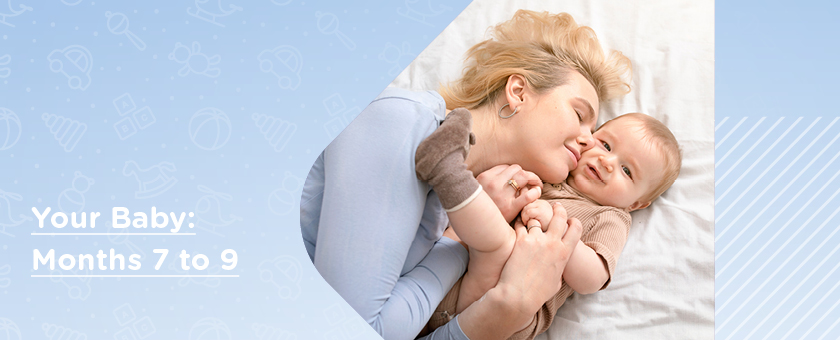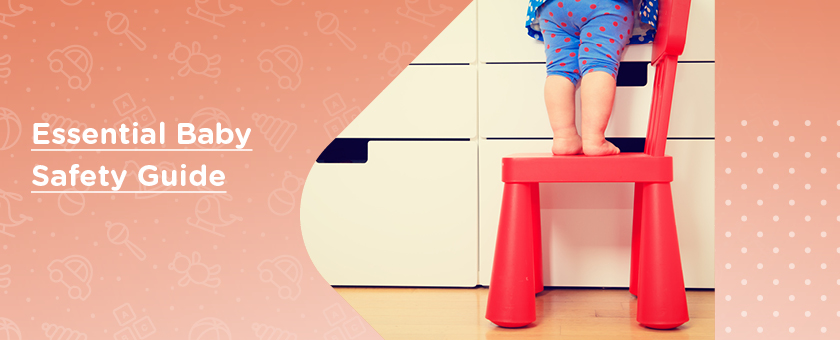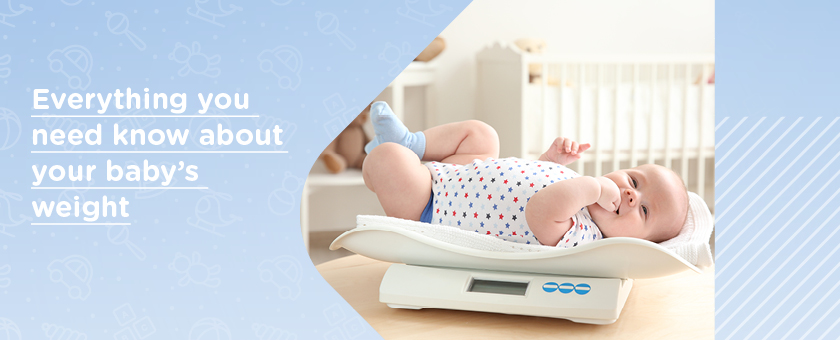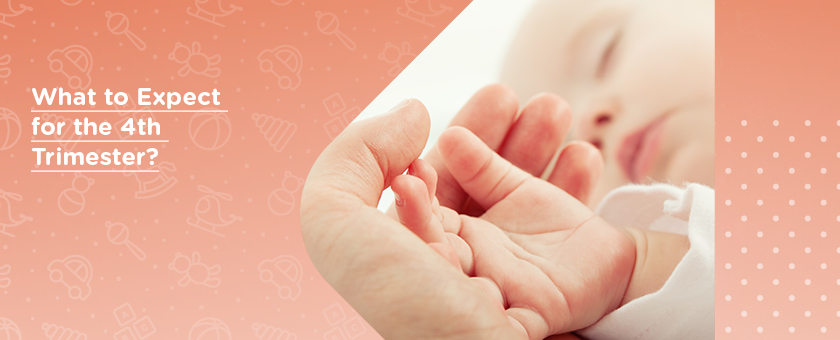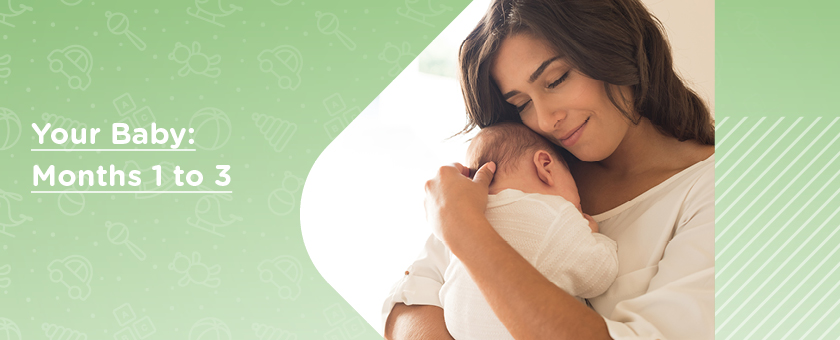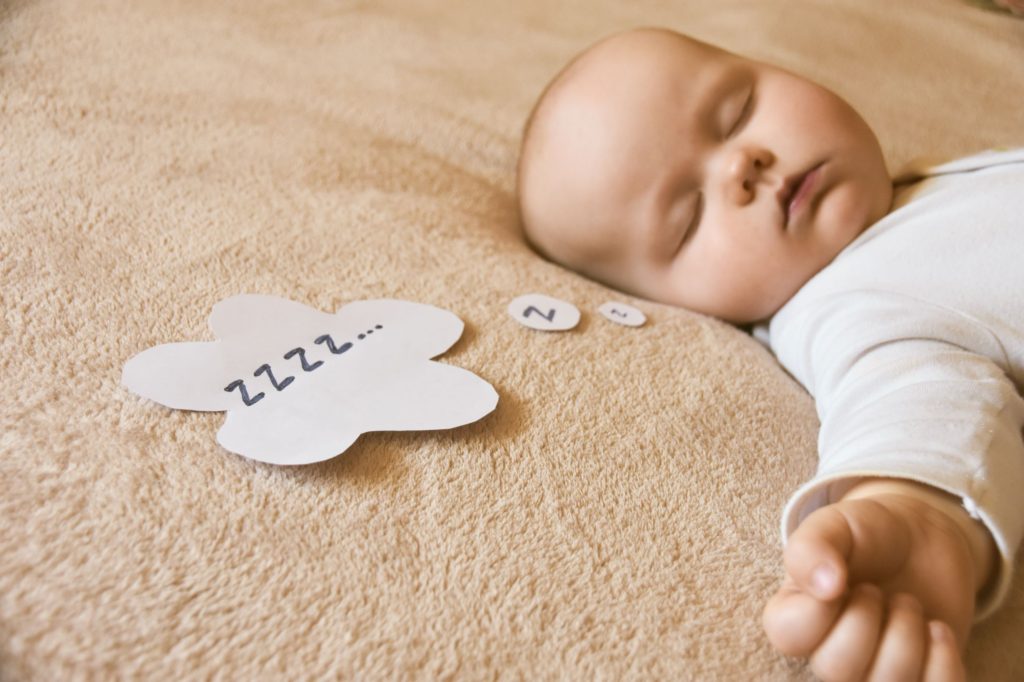
One day your little one is snoozing away peacefully and then out of nowhere they throw you a curveball. Suddenly, you’re up at odd hours and those long sleeping sessions your newborn had the first couple of months vanish. This is when the dreaded sleep regression hits! Fear not though mums and dads – we’ve got all the tips and tricks to get you through this bump in the road with your bundle of joy. Your baby’s sleep regression won’t last forever, and you will enjoy a full night’s sleep once again.
What is sleep regression?
Sleep regression is a period of time when a little one who was once sleeping well experiences a temporary setback in their sleep pattern. They can last anywhere between two to four weeks. Throughout a regression, the following can occur:
- Your child will go from snoozing soundly to waking up frequently during the night.
- It becomes trickier to calm them down before they sleep.
- They wake up early from naps or fight nap times altogether.
- They can experience changes in appetite.
In most cases, you’ll experience all three with your sweetheart. At 4 months, little ones experience their first time in a cycle of sleep regressions. However, this isn’t to say that sleep regression is necessarily a bad thing. Although tough on parents, they’re actually developmentally appropriate for your child, and it’s completely normal.
Why does sleep regression happen?

There are a number of factors that can cause sleep regression. A shift in snoozing habits more often than not happens because your little one is going through a growth spurt, or their brain is developing, or even both. Those exciting milestones your tot accomplishes, for example crawling and teething, can create shifts in sleeping patterns that push those all-important developments. In other words, your bub growing up may mean a little less sleep for you, but you can get rid of the impact of sleep regressions by forming good sleeping habits off the bat.
Baby sleep regression ages
Whilst sleep regressions don’t happen at exact ages, typically they can occur when your bundle of joy reaches around about 4 months, 9 months and 18 months old. They happen when little ones begin to experience some important changes developmentally and it’s these developments more so that happen around specific ages. Here’s a breakdown (although an estimate) for when your treasure may start protesting against snoozing:
4 months old
Not all little ones will experience all the stages of sleep regression. However, most parents find themselves grappling with their child waking up more frequently during the night between 4 and 5 months old. At this developmental stage, your bub is starting to see themselves as separate from others — yes even you! This is also when their sleeping habits begin to change too, and their long snoozing sessions turn into battles against sleep. Even little ones who began sleeping well from the start can also struggle from sleep regression at this point. Just prepare yourself for a lot of cooing, cuddling, rocking and shushing to get your babe to mellow down and have sweet dreams.
7 months old
The sleep regression your bub goes through between 6 and 7 months old is another one that most babies experience one way or another. At this point, your bundle of joy will be making exciting developmental leaps. Many 6- to 7-month-old babes will be learning to sit up on their own at this stage, and some may even start crawling along on their tummy. Their munching habits will also begin to shift as you take the journey of exploring more solid, yummy foods. Watch out – your little one will also be making full use of their pincer grasp at this stage too to pick their food up and feed themselves – so prepare for the mess! Naturally, with such big milestones being accomplished, sleeping troubles may also follow too.
9 months old
Similar to when your bub is between 6 to 7 months old, the 8-to-9-month sleep regression is also due to a lot of brain development. Your little one may be starting to crawl, scoot about and even pull themselves up to stand up. Many babies at this age tend to find nap time challenging. This also goes for during the night too, as they’ll begin to practice standing up in their crib without knowing how to get back down. Your babe is also starting to put things into groups which is the beginning of something beautiful – their learning language. For example, they start to understand that something is a ball no matter what colour or size it is. Such times are exciting and can keep even the calmest of babies up at night and during naptime. However, it’s a small price to pay to witness these amazing moments of your sweetheart growing up!
12 months old
When your babe hits one years old, they’ll be learning even more skills, one of the most important ones being able to hear them call mum or dads name for the first time. Noises are now slowly becoming words – hooray! Your not-so-little one will soon be able to walk and will be trying to pull themselves up on everything in sight – so keep your beady eyes on your little rebel! Such developments may cause your child to wake up early from their naps or even oppose them completely. Babies that were sleeping well again through the night may start to wake up often again.
15 months old
At 15 months old your tot may be in the middle of two big changes — walking independently and transitioning to one nap a day. Mums and dads, you’ve been warned – at this age you’ll begin to have a little adventurer on your hands! Your child will constantly be on the move as they practice walking everywhere – and probably falling a couple of times too. Some children are so focused on practicing this exciting new ability that it may cause them trouble snoozing. The change from two naps a day to one can also be a bumpy ride. Less daytime sleep can leave your bub overtired at bedtime which then makes getting to bed smoothly a tad harder. Plus, being overtired can even mean more night-time waking – don’t worry though it’s not forever!
2 years old
Your tot’s speaking abilities will now be getting more advanced, and they’ll be experimenting with new words and phrases. Be prepared to hear a lot of “no!” at this stage as your little rebel begins to experiment with the power of choice. Children at this age realise that they have the option of choice. This is why many parents find their little rebel may protest more verbally against bedtime and naps.
3 years old
As your not so little one leaves behind their toddler phase, some may go through a final sleep regression around 3 years old. As their world gets bigger, fears and phobias may also come about which can be particularly troubling at night. Unwanted nightmares, requests to check under the bed and insisting mummy or daddy to stay with them at bedtime are common at this age. At this stage, it’s also common for many parents to embark on the potty-training journey. The logistics of ditching nappies at night and the developmental jump this can be for children can of course disrupt their sleeping pattern.
Breaking the habit
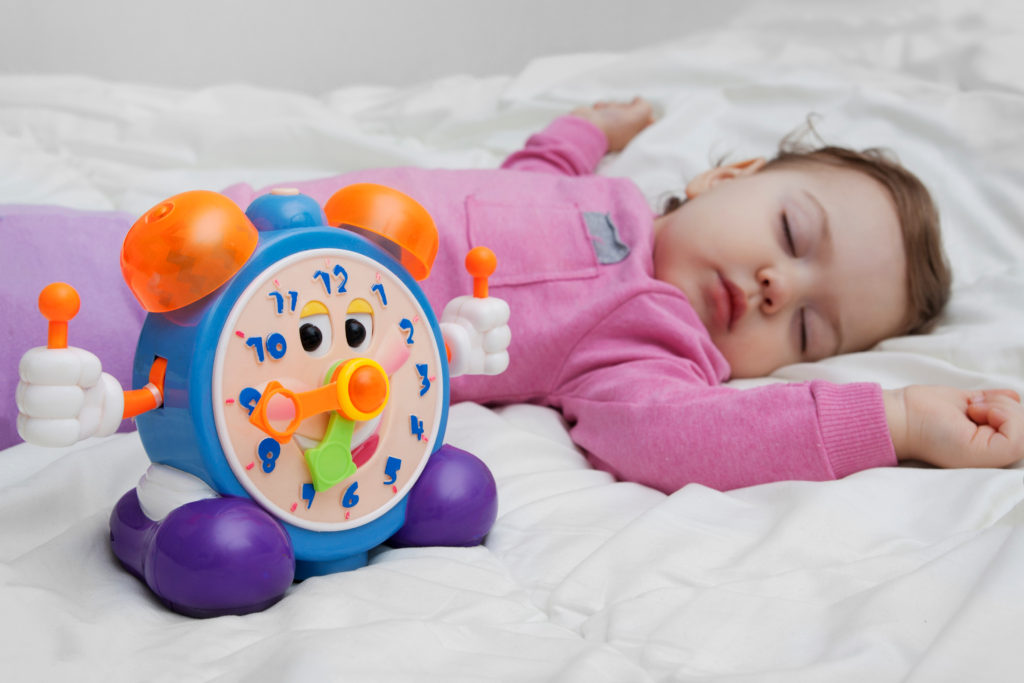
When your little rebel engages in sleep strikes, a good bedtime routine needs to be established which is as relaxing and comfortable as possible. You could do this in some of the following ways:
- Create a calming environment
Use blackout blinds to make the room completely dark and play relaxing music to encourage a peaceful slumber. - Winding down is essential
Gradually dim the lights an hour before your little one’s bedtime. Put all the noisy toys away, turn the TV off and get their favourite book out! This will help set the scene, that it’s time to unwind and get ready for snoozing. - Avoid changing up the bedtime routine
Those endless nights of sleep deprivation may tempt you to try a new routine. However, tots are especially sensitive to change, which could then lead to an even worse night’s sleep. Even if it does work, you could end up committing yourself to a new standard, that’s tricky to maintain in the long run. So, think carefully before changing things up! - Your own sleep quality matters too
It’s no doubt, a good night’s sleep prepares you for the day ahead. Sleep disturbances can’t always be helped. However, there are measures you can take, to enhance your sleep quality. Get all those electronic devices switched off, at least an hour before bedtime. This will get rid of the troublesome impacts of blue light. We recommend cocooning yourself in natural bedding like wool. Trust us – it’ll help you get cosy sooner, which means sleep will also come around quicker! This way you can fit in a little more extra snoozing, before your bub wakes up.
There you have it – everything you need to know from what is sleep regression to the baby sleep regression ages. No matter what age your sweetheart experiences their sleep regressions, support and patience from mummy and daddy will get them through it smoothly. You will need to be there for them as they uncover news skills and understanding of themselves and why these are keeping them up. More importantly – remember this is all just a phase and before you know it, they’ll be having peaceful slumbers and sweet dreams – and so will you!

